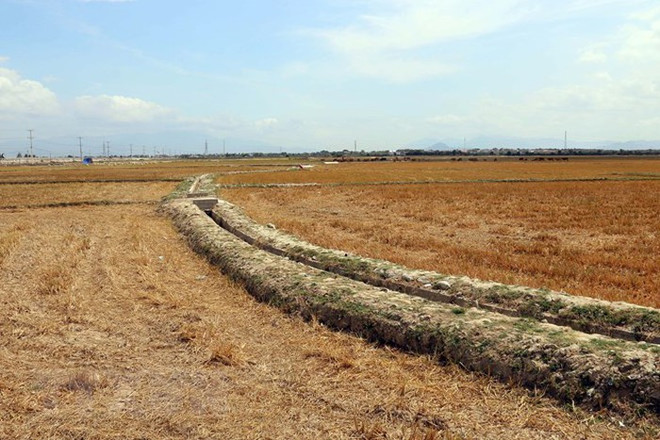 Climate change response is one of the main cooperation fields between Vietnam and Japan. (Source: VNA)
Climate change response is one of the main cooperation fields between Vietnam and Japan. (Source: VNA)Hanoi (VNA) – The fifth Vietnam-Japan Environment Policy Dialoguewas held in Hanoi on January 9 by the Vietnamese Ministry of Natural Resourcesand Environment (MoNRE) and the Japanese Ministry of the Environment.
Speaking at the event,MoNRE Deputy Minister Vo Tuan Nhan spoke highly of the efforts by the Japanese ministryin cooperating with and supporting Vietnam in human resources development, and inhelping the country deal with issues on environmental management policies andclimate change response.
Cooperation with Japanin environmental protection has created opportunities for Vietnam to learn fromthe country’s experience in addressing issues related to environmentalmanagement, Nhan stated, adding that climate change response will be a maintask of the ministry in 2019 and the following years.
Japanese Vice Minister of the Environment Takaaki Katsumata said that during the 45 years of diplomatic ties,Japan and Vietnam have cooperated with each other in many fields, including theenvironment.
The Vietnam-JapanEnvironmental Policy Dialogue enters the fifth edition, while the Vietnam-JapanEnvironmental Week is being held for the first time from January 9-11, he stated,adding that both sides will exchange views on climate change and wastemanagement, and put forward solutions to address these issues and step upcooperative activities.
This year, they willcontinue consolidating their relations and boosting collaboration in the fieldsof environment and climate change through cooperation programmes and projectson policymaking, green growth, pollution control, and waste and wastewatermanagement and treatment.
The MoNRE proposed thatthe Japanese side maintain cooperation and share its experience with Vietnam inmaking policies on climate change adaptation and greenhouse gas emissionreduction. –VNA




























